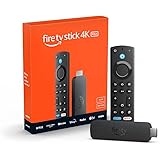Amazon Fire TV Stick 4K Max (newest model), our most powerful 4K streaming stick with Wi-Fi 6E support, 16GB Storage, free and live tv
$44.99 (as of February 4, 2025 12:47 GMT +00:00 - More infoProduct prices and availability are accurate as of the date/time indicated and are subject to change. Any price and availability information displayed on [relevant Amazon Site(s), as applicable] at the time of purchase will apply to the purchase of this product.)Amazon Echo Show 5 (newest model), Smart display with 2x the bass and clearer sound, Charcoal
$79.19 (as of February 4, 2025 12:47 GMT +00:00 - More infoProduct prices and availability are accurate as of the date/time indicated and are subject to change. Any price and availability information displayed on [relevant Amazon Site(s), as applicable] at the time of purchase will apply to the purchase of this product.)Charger for Lenovo Laptop Computer 65W 45W Round Tip Power Supply AC Adapter for Lenovo IdeaPad 330-14, 330-15, 330-17, 510-15, 330s-14, 330s-15 Lenovo Flex 6-14 Laptop Charger
$9.90 (as of February 4, 2025 12:47 GMT +00:00 - More infoProduct prices and availability are accurate as of the date/time indicated and are subject to change. Any price and availability information displayed on [relevant Amazon Site(s), as applicable] at the time of purchase will apply to the purchase of this product.)Anker Laptop Charger, 140W USB-C Charger, 4-Port Multi-Device Fast Charging, Advanced GaN Power Adapter, Intuitive Touch Controls, for MacBook, iPhone 16 Series, Samsung Galaxy, Pixel, and More
$79.99 (as of February 4, 2025 12:47 GMT +00:00 - More infoProduct prices and availability are accurate as of the date/time indicated and are subject to change. Any price and availability information displayed on [relevant Amazon Site(s), as applicable] at the time of purchase will apply to the purchase of this product.)Fruit of the Loom Men's Eversoft Cotton Stay Tucked Crew T-shirt
$15.00 (as of February 4, 2025 12:47 GMT +00:00 - More infoProduct prices and availability are accurate as of the date/time indicated and are subject to change. Any price and availability information displayed on [relevant Amazon Site(s), as applicable] at the time of purchase will apply to the purchase of this product.)In today’s fast-paced world, staying organized and on top of appointments, meetings, and events can be a daunting task. That’s where digital calendars come in – a powerful tool that helps you manage your time and stay focused. In this article, we’ll delve into the world of calendars, exploring their features, benefits, and best practices for maximizing productivity.
Types of Calendars
- Google Calendar: A popular choice among individuals and businesses, Google Calendar offers seamless integration with other Google apps like Gmail and Drive.
- Microsoft Outlook: Part of Microsoft’s Office suite, Outlook provides advanced calendar features, including scheduling meetings and sending invites.
- Apple Calendar: Exclusive to Apple devices, this calendar app integrates with iCloud and other iOS services for a cohesive experience.
- Digital Note-Taking Calendars: Apps like Evernote and OneNote allow you to jot down notes and reminders in addition to scheduling events.
Key Features of Digital Calendars
- Event Scheduling: Create and manage appointments, meetings, and events with ease.
- Reminders: Set notifications for upcoming events or deadlines to stay on track.
- Recurring Events: Schedule recurring events, such as weekly meetings or daily tasks.
- Sharing and Collaboration: Invite others to view or edit your calendar, making it ideal for team collaboration.
- Syncing: Sync your digital calendar across multiple devices, ensuring you’re always up-to-date.
Benefits of Digital Calendars
- Increased Productivity: Stay organized and focused with a clear overview of your schedule.
- Reduced Overbooking: Avoid double-booking or missing appointments with automatic reminders.
- Improved Time Management: Make the most of your time by scheduling tasks and events efficiently.
- Enhanced Collaboration: Share calendars with colleagues, family members, or friends for seamless coordination.
Best Practices for Using Digital Calendars
- Set Clear Goals: Define specific goals and objectives to help you stay focused.
- Use Recurring Events: Schedule recurring events to maintain consistency and routine.
- Share Your Calendar: Invite others to view or edit your calendar for improved collaboration.
- Regularly Review and Update: Regularly review and update your digital calendar to ensure accuracy and relevance.
Comparison of Digital Calendars
| Calendar App | Google Calendar | Microsoft Outlook | Apple Calendar |
|---|---|---|---|
| Syncing | Seamless across Google apps | Integrates with Office 365 | Exclusive to iOS devices |
| Sharing | Easy sharing with others | Advanced collaboration features | Limited sharing options |
| Recurring Events | Supports recurring events | Offers advanced scheduling options | Simple recurring event management |
Conclusion
Digital calendars have revolutionized the way we manage our time and stay organized. With a range of features, benefits, and best practices to explore, it’s essential to choose the right calendar app for your needs. Whether you’re an individual or a business, embracing digital calendars can help you streamline your schedule, increase productivity, and achieve greater success.
Technical Specifications:
- Google Calendar: Web-based, available on Android and iOS devices
- Microsoft Outlook: Part of Microsoft Office suite, available on Windows and macOS
- Apple Calendar: Exclusive to Apple devices (iOS, macOS)
- Digital Note-Taking Calendars: Apps like Evernote and OneNote offer calendar features, but with added note-taking capabilities













